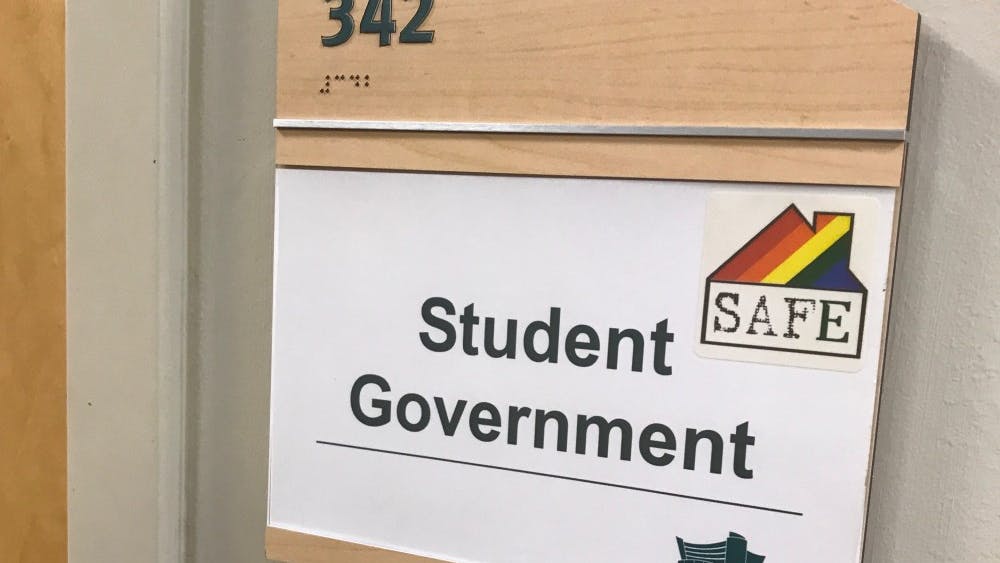The Department of Human Services has announced, as of April, college students around the state of Michigan will no longer be able to access the food assistance program.
“Honestly, once a student leaves their parent’s house to go to college they hit below poverty,” Eastern Michigan University student Thomas Love said. “So there is a need for food assistance among college students.”
The program still has to follow federal guidelines, however it has been said the main priority is to end the fraud by college students.
“College student don’t need food stamps because they should be a part of the food program on campus,” DHS specialist Ayanas Woodard said.
“I think that if people are not trying to get some form of job and just using the bridge card and not for its actual use, then they should lose the privilege, plain and simple,” EMU graduate Edward Davis said. “These things are put in place to assist and not to be totally reliant upon.”
State Representative Dave Agema (R-Grandville) and his peers are responsible for closing what was considered a loophole for college students receiving food benefits.
“Until today, if you were enrolled in college it was considered advancing your employment opportunity and you could qualify for a Bridge Card based on that,” Agema said in a release on the GOP website following DHS Director Maura Corrigan’s decision to end the benefits. “This allowance is now removed and enforcement of the federal law will begin in Michigan in April.”
Agema lauded Corrigan’s decision and said it was an example of “exemplary and responsible leadership” and something he is “proud to see in Lansing and proud to be a part of.”
“I am also very appreciative of the efforts of residents who saw this abuse going on and sent their stories to me and other lawmakers,” Agema said. “We know that the new policy will be popular with many people.”
“Students need to lobby, protest and do anything non-violent to get the governors attention,” EMU student Ashley Reynolds said. “College students should be priority when it comes to food assistance. It’s hard enough for most of us to be full-time students and workers.”
Woodard also said, “All of these cases don’t have to be closed because it’s our job to look into each applicant to be sure that they are not committing fraud.”
The process for applying for food benefits requires the applicant to fill out an application and show verification of income and expenses. According to federal guidelines, individuals applying for food benefits must not have income that exceeds their expenses. The more income a person has, the less money they receive for benefits.
In a March 8 letter addressed to EMU President Susan Martin, Corrigan said there are ways for students to still be eligible. If a student is responsible for caring for children, physically or mentally unfit for employment, participating in an on-the-job-training program, or working 20 hours or less a week, they might still qualify.
Senior Nicole Johnson said college students should be appreciative they were even able to have the assistance for as long as they did.
“Also, I feel like our government offers us so many services and we misuse them,” Johnson said. “Yes, some people really truly need bridge cards, however there are a number of people who only have them because they were available. There are some people getting thousands from financial aid refunds and instead of budgeting money for food, they buy cars and televisions. The government offers us so much, but we have to work for something.”
There is a mixed reaction among students who are affected by the recent change.
“I think that it causes a back peddle in society,” freshman Katherine Zurenko said. “We want our youth to go to college and become educated so they will in return work for our country, but by taking away government assistance — which only 3 percent of state tax dollars goes to food assistance each year — it could potentially force people from attending college because basic needs are unaffordable, which then makes college an upper-class institution.”
The Food Assistance Program, commonly known as food stamps, serves almost 1.9 million Michigan residents. DHS reported that in 2009 and 2010, between 10,000 and 18,000 college and university students were receiving as much as $200 a month in food assistance.
In the letter to Martin, Corrigan said the department will continue to help those who truly need benefits.
“DHS stands ready to extend a helping hand to any individual or family who has a true need, including otherwise eligible college students who care for young children, and those taking the appropriate steps to become self-sufficient,” Corrigan said.









